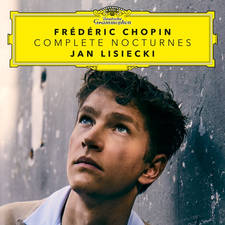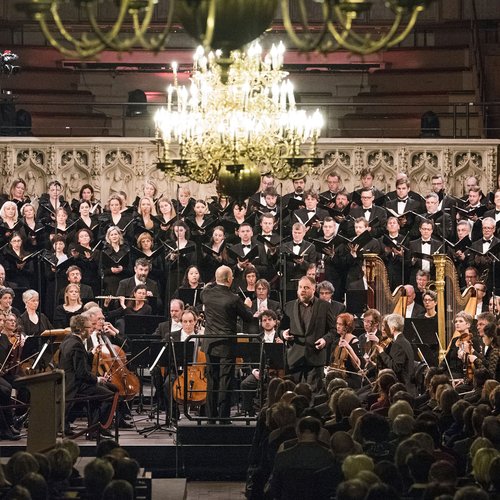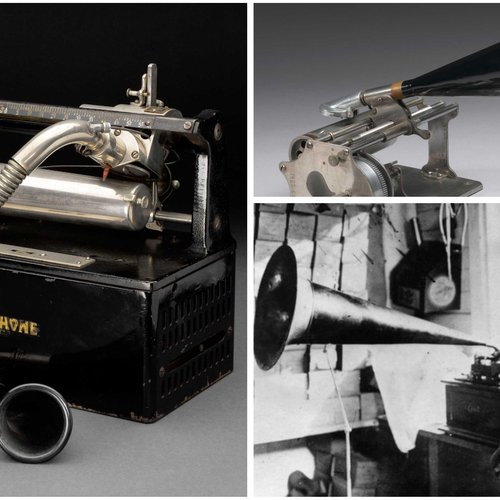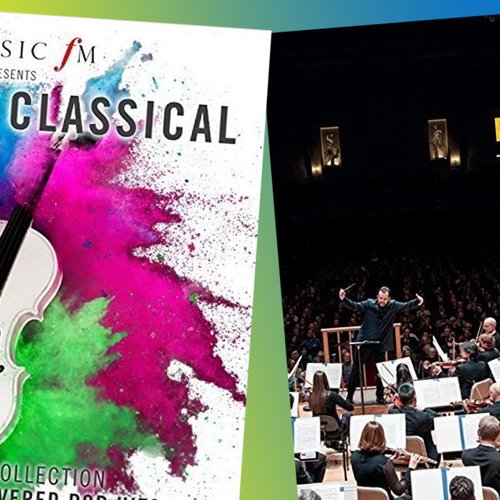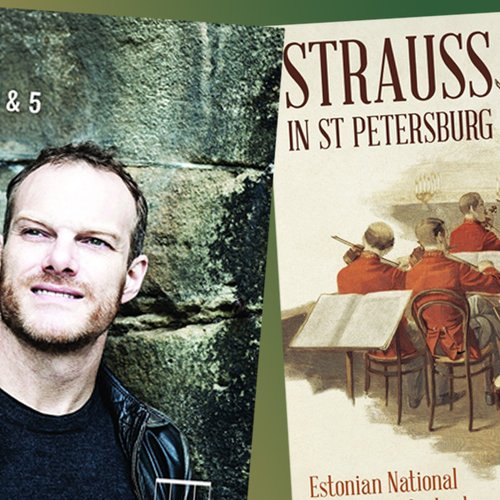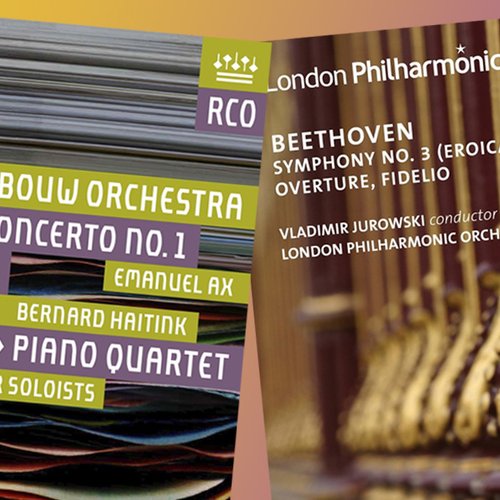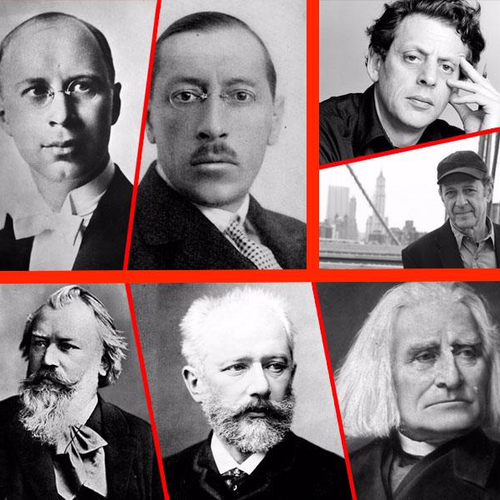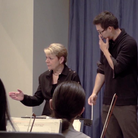What are the lyrics to Brahms’ famous ‘Lullaby’, and what’s the story behind it?
21 November 2023, 11:44
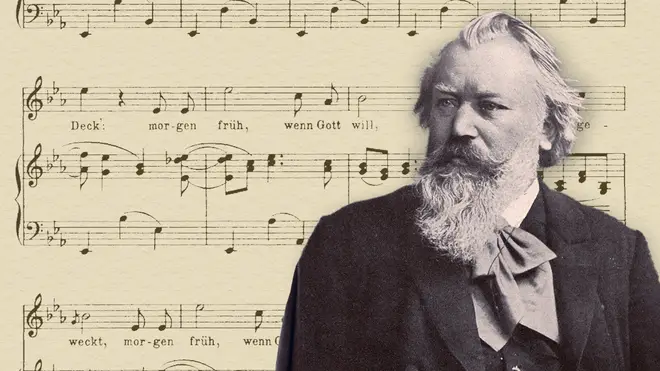
The most famous lullaby ever written, Brahms’ ‘Cradle Song’ has been with many of us since the very beginning whether we realised it or not. But where did it come from, and what are the words?
Listen to this article
Whether you know it as ‘Wiegenlied’, ‘Cradle Song’, or just simply ‘Lullaby’, Brahms’ beautiful lullaby is one of the most popular and timeless pieces of classical music.
And for many, it’s the first piece of classical music they’ll ever hear.
Since it was first written in 1868, the tune’s gentle rocking motion and sweet melody has soothed countless babies to sleep, whether sung from parent to infant, played by a music box, or on a CD, cassette, or streaming service.
Arguably the most famous lullaby ever written, Brahms’ ‘Cradle Song’ has been recorded by everyone from classical superstars Anne Sofie von Otter and Dietrich Fischer-Dieskau, to renowned crooners Bing Crosby and Frank Sinatra.
But what’s the story behind the famous tune, and what are the lyrics? We explore...
Listen to Classic FM’s Baby Bedtime playlist, for the perfect relaxation for your little one >

Brahms's Lullaby – Benjamin Appl and James Baillieu
What’s the history behind Brahms’ ‘Lullaby’?
Brahms wrote his ‘Wiegenlied’ as a gift to his dear friend, Bertha Faber, when her second son was born.
But when he sent the music to Bertha’s husband, Artur, Brahms admitted that the music may contain more than what meets the eye.
“[Ms] Bertha will realise that I wrote the ‘Wiegenlied’ for her little one,” Brahms wrote. “She will find it quite in order ... that while she is singing Hans to sleep, a love song is being sung to her.”
Read more: 10 most beautiful and calming pieces of classical music for babies
In fact, Bertha Faber and Johannes Brahms were more than just old friends. Whilst based in Hamburg in his mid-20s, Brahms had set up a women’s choir, which Bertha had joined.
The pair struck up a close friendship, and would often walk together through the German countryside. As their relationship developed, romance began to blossom, and Bertha would sing the famous German folk tune ‘S’Is Anderscht’ to Brahms on their daily walks.
It became ‘their song’, and although the spark between the pair eventually flickered out and Bertha moved on, Brahms remembered the time fondly enough to hide the tune as a counter-melody in his gift to her son.
The piece received its first public performance on 22 December 1869 by another former flame of Brahms’, Clara Schumann, who played piano while Luise Dustmann sang.
Read more: Best Brahms works: top 10 pieces by the Romantic composer
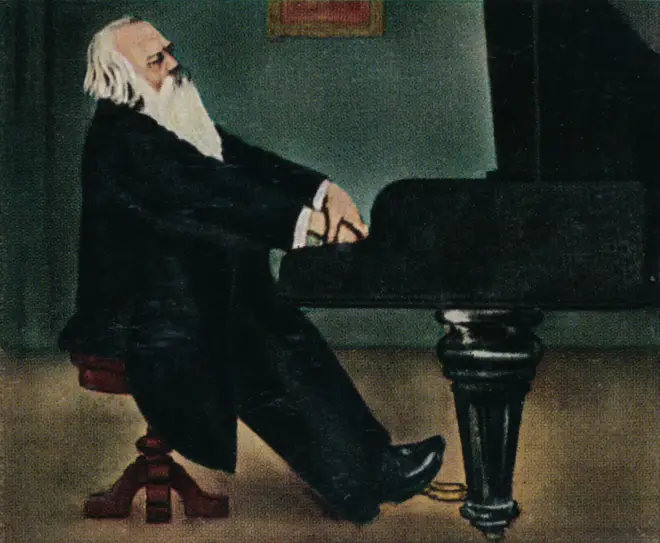
What are the lyrics to Brahms’ ‘Lullaby’?
When it was first published, Brahms’ ‘Lullaby’ had only one verse, but throughout more than 150 years of history, it has gone through several changes.
Whilst multiple variations exist, often changing the first line to ‘Go to sleep’ or ‘Lullaby’, the lyrics sung by Bing Crosby and Frank Sinatra are the ones best known by parents and little ones today – a 20th century take on the Romantic composer’s original:
Lullaby and good night,
Thy mother’s delight
Bright angels around,
My darling, shall stand.
They will guide thee from harms,
Thou shall wake in my arms.
They will guide thee from harms,
Thou shall wake in my arms.
Lullaby and good night,
With roses bedight
With lilies bedecked,
Is my baby’s wee bed.
Lay thee down, now and rest,
May thy slumber be blessed.
Lay thee down, now and rest,
May thy slumber be blessed.
These aren’t the words Brahms originally used, however – not least since he only used German texts for his vocal works.
The first verse, and the only verse originally published, was taken from a collection of German folk poems, Des Knaben Wunderhorn, or ‘The boy’s magic horn’. Brahms later added a second verse, with words adapted from a poem by Georg Scherer:
Guten Abend, gut’ Nacht,
mit Rosen bedacht,
mit Näglein besteckt,
schlupf’ unter die Deck’:
Morgen früh, wenn Gott will,
wirst du wieder geweckt.
Guten Abend, gut’ Nacht,
von Englein bewacht,
die zeigen im Traum
dir Christkindleins Baum:
schlaf nun selig und süß,
schau im Traum ’s Paradies.
In English, these translate to:
Good evening, good night,
With roses covered,
With cloves adorned,
Slip under the covers.
Tomorrow morning, if God wills,
you will wake once again.
Good evening, good night.
By angels watched,
Who show you in your dream
the Christ-child’s tree.
Sleep now blissfully and sweetly,
see paradise in your dreams.
